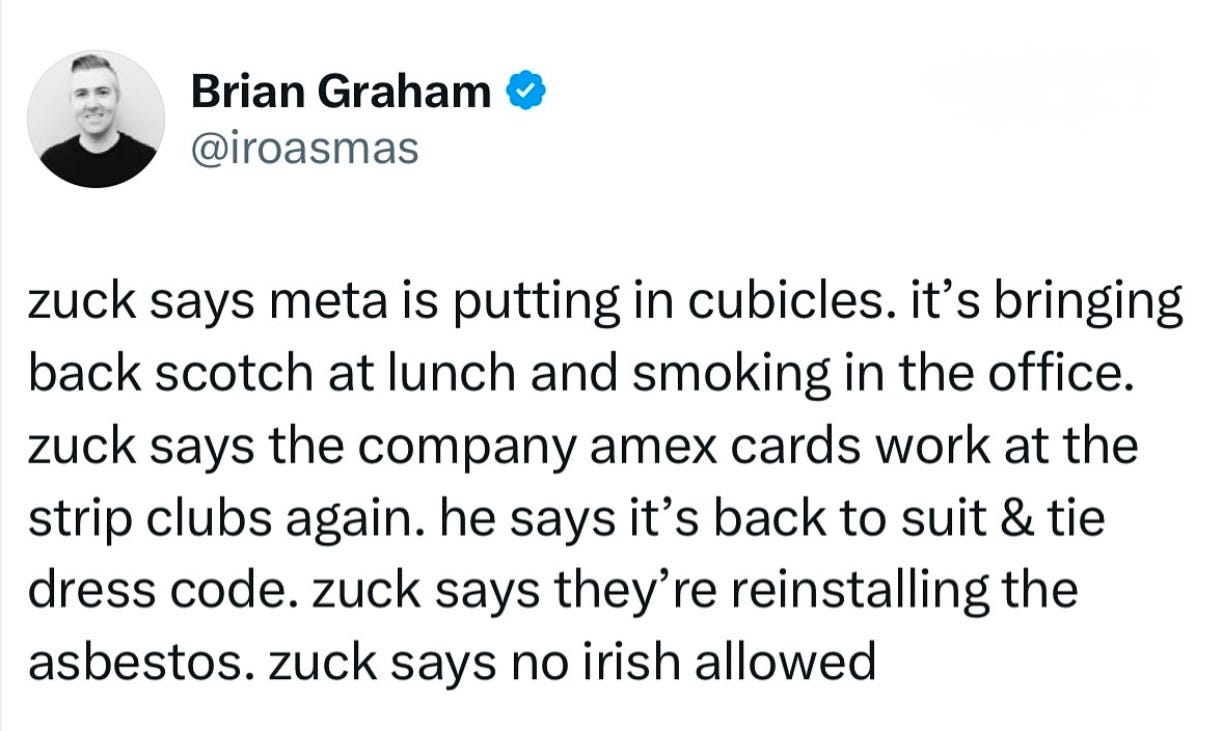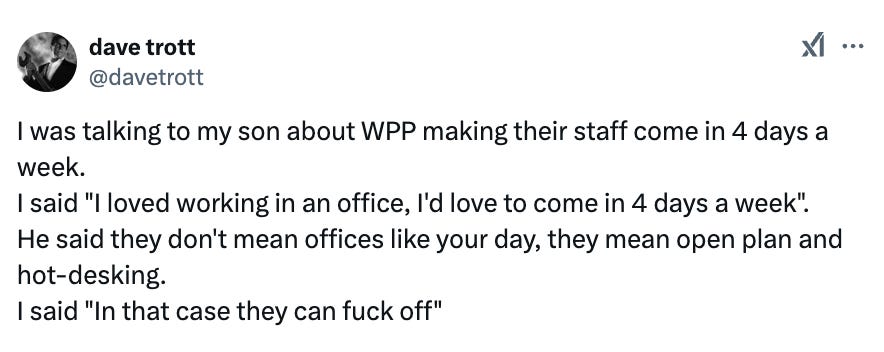Final week I used to be watching a TikTok from Yuval, one in all my favorite creators on the app. Yuval is prodigiously clever, the type of creator that the algorithm on YouTube Shorts or Reels by no means present to me (selecting as a substitute to pump my feed stuffed with Centrist Dad comedy that I totally detest however that somebody should have despatched me as soon as in a Whatsapp group and it’s polluted my stream). Yuval’s articulate brilliance characterises the pleasant discovery that I really like from the clock app.
I first adopted him after one his frankly dazzling geolocation movies popped up in my feed. However he’s not restricted to GeoguessrTok, he regularly presents explainers about science, politics and historical past. I really like the man.
The TikTok I used to be watching was about our jobs and our id. In an emotional video because it seemed just like the Chinese language-owned app would possibly go darkish perpetually he shared a narrative about how he’d as soon as been a trainer, however had been pressured to give up when the stress of the job overwhelmed him. He resigned to the varsity’s headteacher and shortly discovered himself leaving the varsity.
It was strolling out of the establishment ‘when it dawned on me, that I’d by no means once more stroll into that constructing as a trainer once more’. He confesses that he ‘simply began crying’.
‘As a lot as I wanted to depart I realised I used to be dropping an enormous a part of my id. As troublesome because it was, educating wasn’t only a job, it was who I used to be’.
He explains that the upcoming closure of TikTok was an analogous second for him. After he’d misplaced his id as a trainer, he’d ‘received his life again‘ when his posts began incomes an viewers.
Yuval understands id properly. Within the aftermath of the assault on Gaza, Yuval, an American Jew, was hounded to apologise for the actions of the Netanyahu authorities. The recommended search on TikTok (unequivocally one of many worst bits of AI on the web) regularly (falsely) recommended ‘Yuval anti Palestine controversy’. He responded with a grace and conviction that’s immensely troublesome to execute successfully within the furnace of social media.
Yuval’s dialog about his id, first as a trainer, then as a TikTokker is relatable. For good or for dangerous we do really feel that our jobs signify us. Having an id that sees us because the hero in our lives is a vital a part of having wholesome self-worth. The rationale why so many workers need to know what their firm coverage is on Ukraine, on Gaza or (as somebody informed me this week) the stabbings in Southport is that we need to really feel like our jobs signify us. They type an enormous a part of our id. Adam Grant discovered that staff’ pleasure of their organisation correlated with worker engagement. If we really feel that our firm is doing good on the planet, in flip we extra simply imagine that we’re the goodies.
When our jobs change it disrupts one of many pillars of who we’re.
And right here’s the complication to this. Many people aren’t positive that our jobs will exist sooner or later. In all places we flip we’re introduced with the concept that AI goes to vary our jobs.
We naturally tie our sense of id to our jobs however paradoxically, jobs themselves have gotten much less steady and extra task-oriented. That is going to create stress: we crave function and belonging in our roles, however our roles have gotten extra fragmented and non permanent.
Sooner or later our id goes to be fluid and ever evolving. The anchor factors that Yuval seemed for will likely be gone.
Leaders want to know this, that sooner or later work goes to be much less about what we do and extra about who we have gotten. One of the best organisations will likely be workplaces that perceive id and assist workers writer their very own story.
This paper that measures CEO despair from earnings calls is superficially fascinating. The research educated an AI mannequin on 189 non CEOs, 65 of whom suffered from despair. The mannequin was then performed the recordings of earnings calls and was requested to diagnose who was affected by the situation.
Veteran leaders and feminine bosses have been much less more likely to present indicators of despair. Those that have been lacking incomes forecasts have been extra more likely to be depressed.
So how lengthy earlier than this involves interviews? And the way lengthy after that earlier than it involves efficiency critiques? Initially fascinating, however with worrying penalties. Black Mirror episode incoming


-
As we begin to see massive variations within the RTO insurance policies of various industries the FT asks if our hybrid working coverage is turning into a inform of how quaint our sector is? ‘Are workplaces the brand new ties?’
-
“OpenAI’s Whisper transcription instrument is inventing massive blocks of textual content in medical diagnoses”: I am a giant booster for AI however tales like this are holding the entire sector again. In a research over half of the transcriptions included speech that hadn’t occurred (together with accusing a affected person of being a assassin, not perfect should you’re nearly to go below to have your spleen taken out) – even when the audio was crystal clear. Within the UK the Prime Minister has gambled that AI goes to stir the nation out of a spiral of low productiveness and sluggish development, however these tales are worrying in each substance and future consequence
-
Trump’s henchman Stephen Miller final 12 months informed Mark Zuckerberg that the President was ‘going to go to battle with DEI’. We all know the remaining…
-
“My journey prices will bounce from £200 to £500 a month. This enhance, mixed with extra childcare bills, will make it unimaginable for me to afford a home as deliberate”: nice article concerning the fallout from WPP’s RTO mandate
-
Lots of people rightly thought that the BBC Panorama about WFH was appalling. (An instance of the criticism). One lowlight was the BBC’s Economics correspondent Zoe Conway asking somebody if she thought WFH-ers have been ‘egocentric’ for not coming into the workplace to offer enterprise to struggling dry cleansing retailers. Sure, I’ve barely had a payrise since Covid however right here I’m going once more selfishly protecting my coat out of Sketchleys. Felt worthy of GB Information
-
Off subject however watching Billie Eilish and Finneas analyse Birds of a Feather is simply breathtakingly good


Somebody commented to a buddy of mine final week, ‘I preferred Bruce’s e-newsletter this week however there have been numerous typos in it’. So what do your typos say about you? Seems it’s not good (until you’re saying one thing emotional).
On this week’s podcast Professor Andrew Brodsky provides us a discipline information to communications and tells how we must be rethinking how we message.
How did Shopify and Netflix reinvent their communication? How can any of us navigate a bulging calendar and overloaded inbox? Andrew’s new guide Ping is out in February.
Hear: Apple / Spotify / web site

